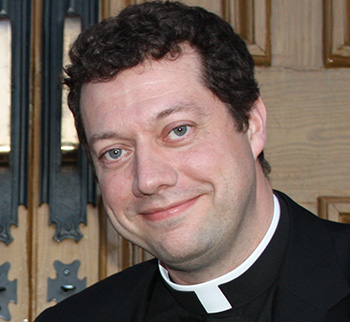TORONTO — To coincide with Yom Hashoah, the Anglican Church of Canada last week re-released a 1989 document stressing its opposition to anti-Semitism and acknowledging its historical complicity in Jewish persecution.
From Darkness to Dawn: Rethinking Attitudes Towards Jews and Judaism in the Light of the Holocaust, which can be found on the church’s website, is a 64-page study guide produced by the now defunct subcommittee on Jewish-Anglican relations of the church’s national executive council, the predecessor to the church’s current governing body, the Council of General Synod.
The document’s re-release – which Archdeacon Bruce Myers, the church’s co-ordinator of ecumenical and interfaith relations, stressed could be of value not just to Anglicans, but all Christians – was prompted by a Anglican General Synod resolution passed in 2013 committing the church to “strengthen relationships with Jews and Muslims [and] resolutely oppose anti-Semitism, anti-Arab sentiments and Islamophobia.”
Initially written in response to the church’s 1983 resolution to “deplore recent expressions of anti-Semitism in Canada,” the 1989 document was intended as a resource to help parishioners, congregations and study groups better understand Judaism, as well as Christianity’s roots in Judaism and how Christianity has misunderstood Judaism in ways that contributed to the marginalization or persecution of Jews in the past.
Len Rudner, director of community relations and outreach for the Centre for Israel and Jewish Affairs (CIJA), said the document has “aged remarkably well” and is “an honest attempt to consider the terrible roots of anti-Semitism and the fruits it bore in the middle 20th century.”
Archdeacon Myers said he discovered the original document while researching Anglican-Jewish relations, and having been unaware of its existence, thought, “perhaps this document hadn’t been received by the church and its members in the way that had been intended.”
Save for a new preface he wrote, the document has been left unchanged, because, he said, “though the case studies cited in [it] seem a bit dated, the wider themes and questions the document raises are just as timely as ever.”
The Anglican Church has, he said, been looking to strengthen relations with Jews, particularly since the 2012 suspension of the Canadian Christian-Jewish Consultation (CJCC), a roundtable comprising representatives from Canadian Jewish Congress (CIJA’s predecessor) and an assortment of national church bodies, including the Anglican Church.
CIJA stepped away from the table after the General Council of the United Church of Canada boycotted goods produced by Israeli companies in the West Bank.
“The decision made by the General Council of the United Church remains, and we remain away from the table,” Rudner said. “To restore our relationship with the General Council of the United Church, they’d have to rescind their position [on boycotts].”
He said CIJA continues to work with individual United Church congregations and that its issue is with the General Council.
In a statement, Gail Allen, the United Church’s co-ordinator of interchurch and interfaith relations, didn’t address the boycott issue, but said her church “would certainly want to affirm [the Anglican church’s] decision to engage in the kind of study they’re talking about. She added that the United Church “encourage[s] our members to seek opportunities to meet with Jews, learn about Judaism… and be aware of, and vigilant about, resisting anti-Semitism.”
Despite progress in terms of Christians better understanding of Christianity’s origin in Judaism, Archdeacon Myers said, anti-Semitism remains, even in places as seemingly tolerant as Canada.
“Whether just in casual conversation or more public demonstrations of intolerance against Jews, such as the desecration of cemeteries… [and] a detectable spike in public acts of anti-Semitism in different parts of Canada last summer… We need to be constantly vigilant and not be lulled into a false sense of ‘anti-Semitism is an issue of the past,’” Archdeacon Myers said.
From Darkness to Dawn references Canadian Holocaust deniers James Keegstra and Ernst Zundel, who were prominent when it was written:. “We did discuss internally whether we should come up with more recent examples of anti-Semitism or tweak some of the text. But mainly we chose to re-release it [without changes] to acknowledge the enormous amount of work that went into it,” he added.
